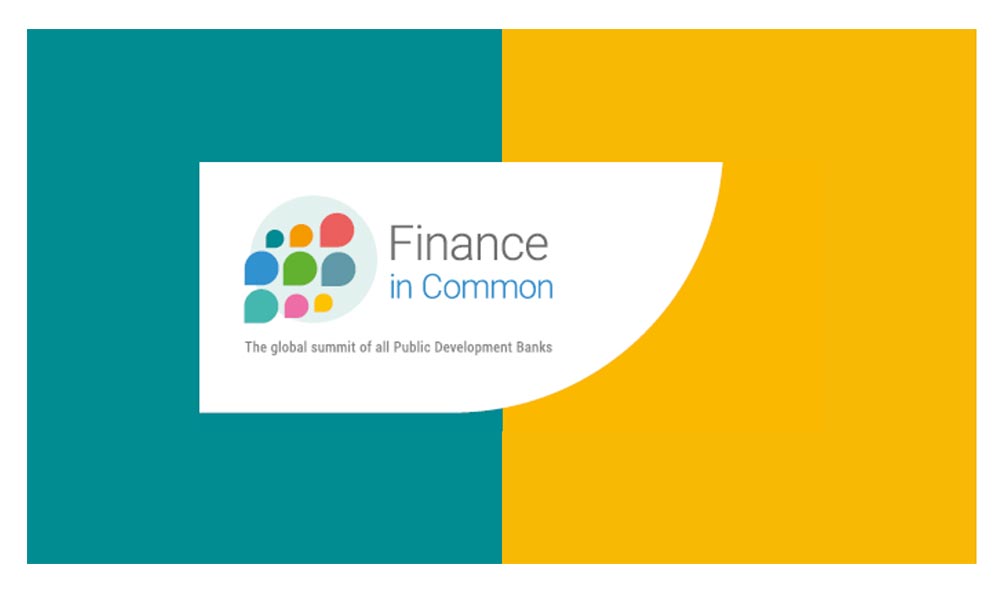Did you know that...
Building upon the positive results of the first edition of the Finance in Common Summit (FiCS), Public Development Banks convened for a second time to reiterate and reinforce their commitments in support of common actions for climate and sustainable development.
The Finance in Common Summit is an initiative of the World Federation of Development Finance Institutions (WFDFI) and the International Development Finance Club (IDFC) with the support of all the members of the FICS coalition, to discuss the reorientation of global finance towards climate and SDGs.

The 2021 Finance in Common Summit was hosted by Cassa Depositi e Prestiti (CDP), the Italian National Promotional Institution and Financial Institution for Development Cooperation, in partnership with the International Fund for Agricultural Development(IFAD) and with the support from all the members of the Finance in Common Coalition and was held 19-20 October 2021 in Rome in digital format. It gathered the whole development bank community, comprising more than 500 Public Development Banks (PDBs) and other key stakeholders (governments, central banks, private sector, civil society, think tanks and academia, etc.).
The Summit explored the theme of agriculture, agribusiness and food systems financing to promote models capable of catalyzing public and private resources towards sustainable agri-food systems and food security, the fight against and adaptation to climate change, biodiversity protection, social inclusion not disjoint from promotion of gender equality, and focusing on the contribution of PDBs to help ending hunger and transforming the system, with their capacity of reaching narrow funding gaps and consolidate bridges between stakeholders.
During the Summit, the “Moving towards sustainable agri-food systems: analysis and strategic scenarios” report revealed that the world’s population will increase by around 25% over the next 30 years, adding up to a total of around 10 billion people, but the current agri-food system is unable to respond with adequate output levels.
The increasing digitalization and the use of digital platforms can provide tools, resources, and opportunities to create innovation that can have positive environmental and social impacts, but they can do better only provided greater investment in research and development in all related sciences is promoted, together with incentives for private actors to adapt and adopt technological advances.
Transforming agri-food systems is a key driver of both the SDGs and tackling the climate crisis, and they also offer critical opportunities to improve livelihoods for the poorest and most vulnerable, create jobs, bolster gender empowerment and preserve biodiversity. They play a decisive role with the five f’s, prerequisites of agri-food systems: food, feed, fiber, fuel and friendly environment.
On the sidelines of the Summit, QU Dongyu, Director-General of the Food and Agriculture Organization of the United Nations (FAO), and CDP Chief Executive Officer Dario Scannapieco signed a Letter of Intent paving the way to intensified collaboration by building a solid partnership on food safety issues and implement joint project initiatives designed to support the agri-food sector in rural areas of developing countries.
This agreement recognizes the shared aim for the transformation of agri-food systems, rural development and natural resource conservation, with a strategic focus on increased and improved investments in areas needed the most.
The collaboration is particularly aimed at boosting financing for small-holder farmers and small and medium-sized agri-food enterprises, using blended finance to support greater private investment in sustainable agri-food systems, and the prospects for formulating and implementing joint projects financed by the Green Climate Fund.
Sources:
financeincommon.org
fao.org
ansa.it
adnkronos.com